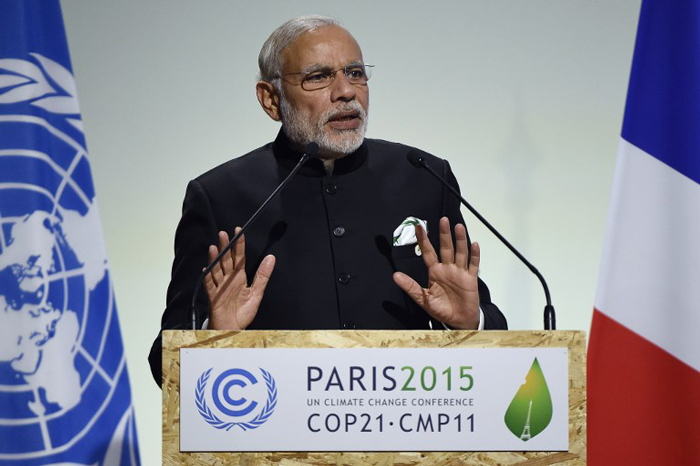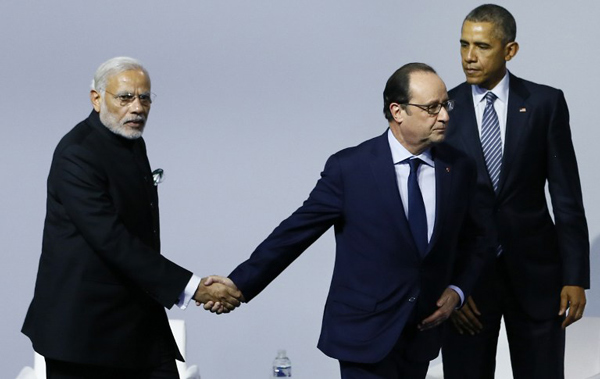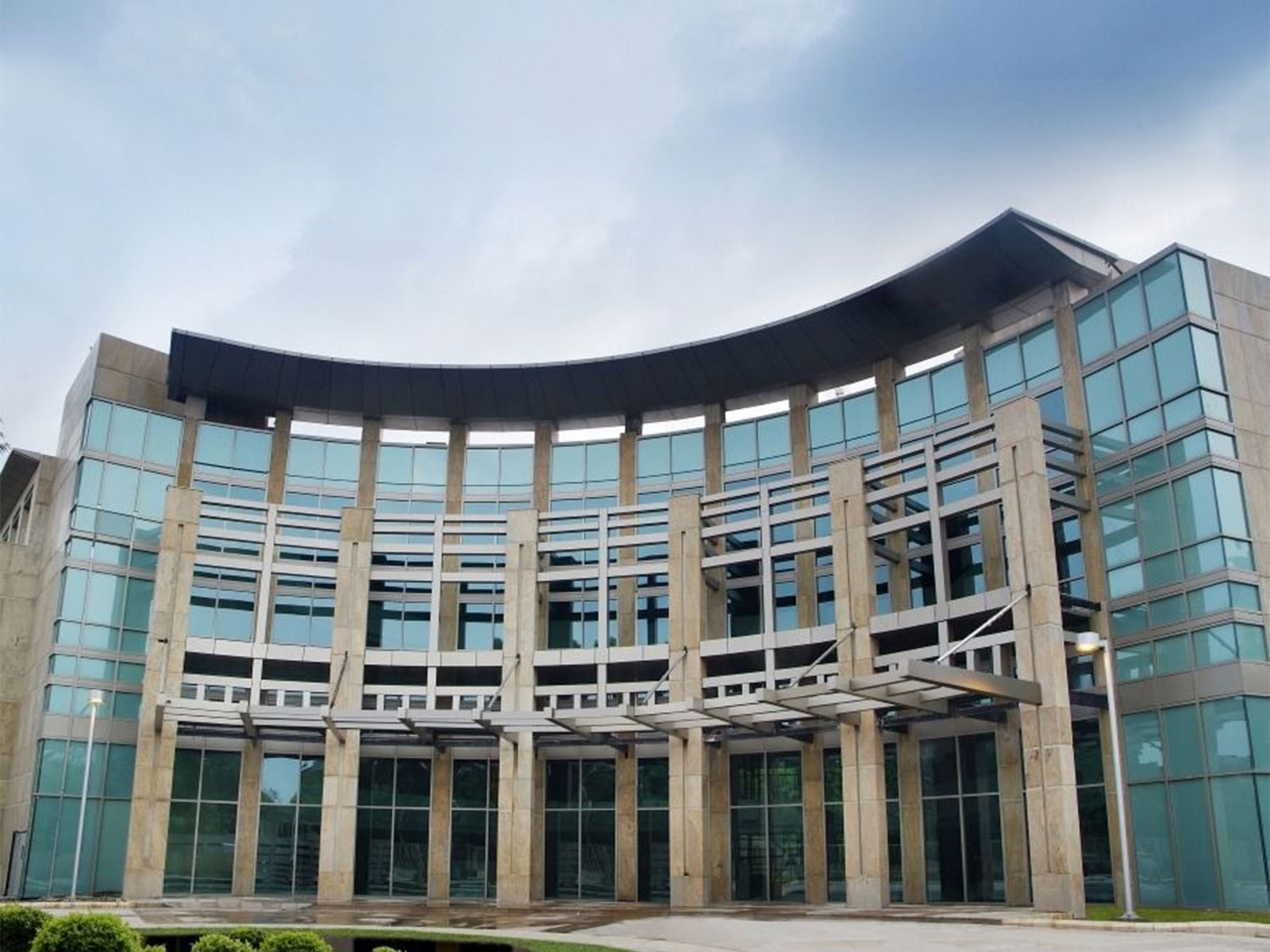#COP21: Modi ambushes Obama. Ticks off the US & other rich nations

Modi in Paris
- Narendra Modi was aggressive at Paris climate summit on Monday
- His speech was directed at the rich nations
More in the story
- What did Modi have to tell the developed countries
- Why is India\'s stand justified
Prime Minister Narendra Modi put up a strong front against developed nations at the COP21 climate summit in Paris on Monday.
Not only must they take "aggressive" action, but also fulfill their responsibilities towards giving climate-related assistance to developing nations, Modi said.
The Indian Prime Minister was speaking to more than 100 world leaders, but the entire 8-minute speech was directed at developed nations.
Read- The world is talking about this: the A-Z of #COP21
Reiterating his earlier call for climate justice, Modi said rich nations should provide poorer ones the carbon space to grow. On at least two instances he asked them to be transparent in their actions.
Significantly, he underscored the need for differentiation and action-based on capabilities several times: "The principles of equity and Common But Differentiated Responsibility (CBDR) must remain the bedrock of our collective enterprise . Anything else will be morally wrong."
This is significant, because developed nations have been trying to do exactly the opposite.
CBDR says rich nations, with a the largest share of historical emissions (hence the largest responsibility for global warming) also have to take most of the remedial action. It has been the basis of all climate negotiations since their inception in 1992.
But in the last few weeks rich countries have tried turning CBDR on its head, asking India to take up a larger role in climate action - cut more emission, give out, instead of receiving climate finance etc.
India has strongly disagreed, saying it is still a poor country with low historical emission, and that it needs the finance and technology from rich countries.
Also read- Battle lines drawn: we break down the US-India face off ahead of #COP21
India, in fact, has made counter-accusations about how the developed nations' own actions have been insufficient compared with their historical responsibility. Modi, too, lent his weight to this.
"It is not just a question of historical responsibility, [the developed nations] also have the most room to make the cuts and make the strongest impact. Climate justice demands that with the little carbon space we still have, developing countries should have enough room to grow," he said.
He then told them to take aggressive action even before 2020 (when a treaty signed at Paris would come into effect), reminding them how they infamously failed to follow the second commitment period of the Kyoto Protocol, which is in effect until 2020.
It didn't stop there. Modi even referred to how developed nations have failed to keep their promise of giving $100 billion each year until 2020 to developing nations for financing clean energy and carry out other climate action.

Photo: Ian Langsdon/Pool/AFP
"They must fulfil their commitment in a credible transparent and meaningful manner," he said.
He touched upon the need for credible and transparent stock-taking of climate action by different countries, stressing on differentiation in this process.
Finally, he reiterated the need to match nations' actions with their capabilities: "We will succeed if we have the wisdom and courage to carve a genuine collective partnership that balances responsibilities and capabilities with aspirations and needs."
The pointed rebuttal wasn't out of place.
In the last few weeks, developed nations led by the United States have called India a "challenge" at the Paris summit, bringing up everything from India's need to cut more emissions to its role in contributing to global climate financing.
At the same time, India has called out how developed nations' climate financing has been far from adequate - according to the finance ministry's calculations, in 2013 and 2014 the funds that actually came in were barely 0.5% of what was promised.
Read more: India calls out rich nations' figures on climate funds. Here's how
Experts feel Modi's attack was an important intervention on the first day of the conference.
"Modi's accusations of the US and other developed nations bullying India to cut emissions without guaranteeing finance are not an exaggeration of the injustice the country is feeling," said Harjeet Singh, climate policy manager at ActionAid International.
"Three hundred million people in India have no access to energy and roughly one-third are living in poverty. Rich nations calling for a common finish line on emission cuts are forgetting that the playing ground was never level to begin with," he added.
More in Catch:
Six numbers to tell you why climate change is a threat to India right now
It's 2015, and women in Iran's orchestra were just told to get off stage. Because they're female
Why Mayawati will never let BJP appropriate BR Ambedkar







![BJP's Kapil Mishra recreates Shankar Mahadevan’s ‘Breathless’ song to highlight Delhi pollution [WATCH] BJP's Kapil Mishra recreates Shankar Mahadevan’s ‘Breathless’ song to highlight Delhi pollution [WATCH]](https://images.catchnews.com/upload/2022/11/03/kapil-mishra_240884_300x172.png)

![Anupam Kher shares pictures of his toned body on 67th birthday [MUST SEE] Anupam Kher shares pictures of his toned body on 67th birthday [MUST SEE]](https://images.catchnews.com/upload/2022/03/07/Anupam_kher_231145_300x172.jpg)






